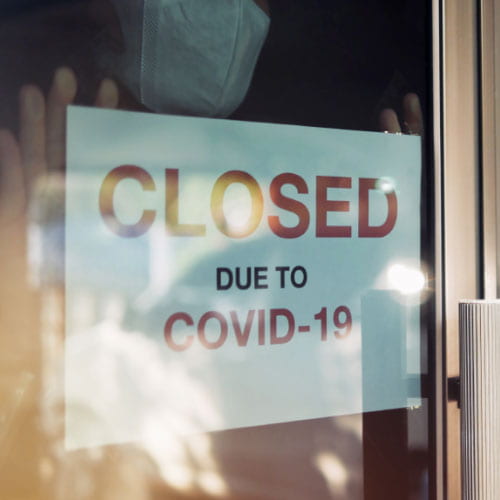By Maddy Scannell and Ranie Lin
Research Interns, McNair Center for Entrepreneurship and Economic Growth
Congress has allocated over $650 billion to the Paycheck Protection Program (PPP), a provision of the CARES Act, which passed in late March 2020. The PPP, which is administered by the Small Business Administration (SBA), provides loans to small businesses that keep employees on their payroll.
In mid-May, the SBA implemented a set of regulations known as the “interim final rules” which imposed additional exclusions on recipients of PPP benefits. New restrictions include eligibility requirements tied to the penal system. For example, if an “owner of 20 percent or more of the equity” has been convicted of any felony within the last five years or is currently facing any criminal charge (including a misdemeanor), the business is ineligible for a PPP loan.[1] The restrictions are also unclear—the SBA’s application form asks whether an applicant has pleaded “no contest” or was placed in a diversion program, events which often take place outside of court and do not require admission of guilt.[2],[3]
These new regulations have drawn bipartisan criticism from a wide-ranging group of politicians and organizations. Critics claim that the restrictions run contrary to the CARES Act, which included eligibility restrictions but did not mandate exclusions for applicants with criminal records.[4] Dozens of advocacy groups have submitted comments criticizing the interim final rule, including the Brennan Center for Justice and the pro-business American Enterprise Institute.[5],[6] Though still pending in the Senate, the House of Representatives passed the HEROES Act, which would override the exclusions of the SBA, and a bipartisan team of senators are working with the Treasury Department on rule changes.[7]
In early June, Treasury Secretary Steve Mnuchin announced that the department would release “more guidance” to help those with criminal histories acquire PPP loans, including potentially scaling back the criminal conviction prohibition period of five years.[8] On June 12th, more specific guideline revisions were released: the five-year period remains in place for applicants convicted of financial felonies, such as fraud or bribery, but was reduced to one year for non-financial felonies.[9]
According to the National Association of Government Guaranteed Lenders, the restrictive and at times chaotic implementation of the PPP has “chilled the willingness of many small businesses to even apply for loans during the second round of P.P.P. funding.”[10] With over $130 billion in PPP funding still unused as of early June, a more inclusive and comprehensive set of lending regulations would help streamline the loan process and provide small businesses with much-needed funds.
References:
[1] https://www.regulations.gov/document?D=SBA-2020-0015-0001
[2] https://www.sba.gov/document/sba-form-2483-paycheck-protection-program-borrower-application-form-revised-june-12-2020
[3] https://www.themarshallproject.org/2020/04/08/trump-administration-tells-some-business-owners-do-not-apply-for-coronavirus-loans
[4] https://www.congress.gov/bill/116th-congress/senate-bill/3548/text
[5] https://ccresourcecenter.org/2020/05/20/efforts-to-allow-small-business-owners-with-a-record-to-access-federal-relief/
[6] https://www.nytimes.com/2020/06/02/opinion/coronavirus-ppp-loan-felons.html
[7] https://www.forbes.com/sites/nicksibilla/2020/05/27/sba-excludes-small-business-owners-with-criminal-records-from-relief-loans
[8] https://www.businessinsider.com/ppp-small-business-loan-changes-treasury-mnuchin-announced-big-unused-2020-6
[9] https://www.sba.gov/sites/default/files/2020-06/PPP-IFR-Revisions-to-First-Interim-Final-Rule_06%2012%2020.pdf
[10] https://www.nytimes.com/2020/06/10/business/Small-business-loans-ppp.html
